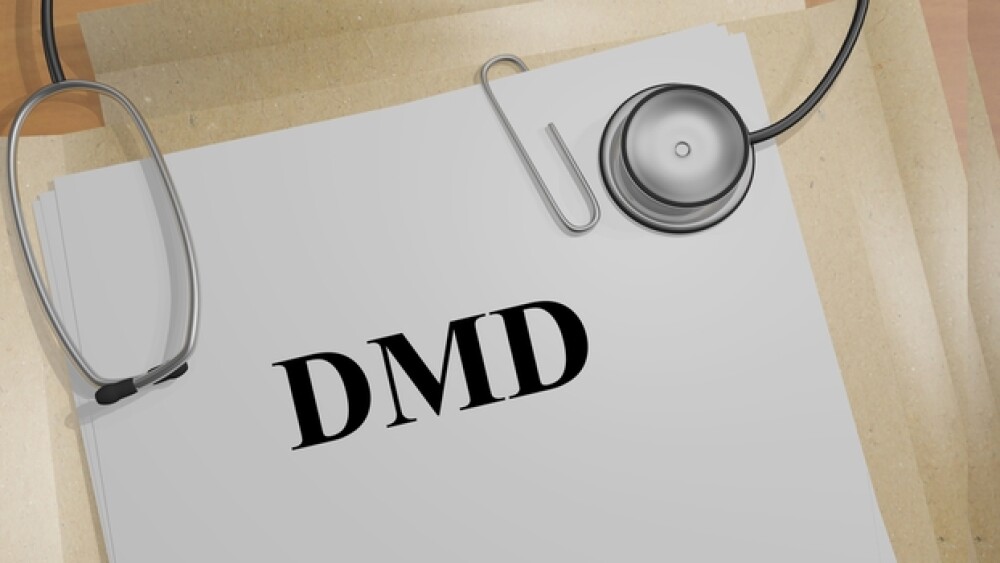This comes after data from an interim analysis suggested that the trial was unlikely to meet its primary endpoint.
Santhera Pharmaceuticals announced today that it is discontinuing its Phase III SIDEROS trial looking into Puldysa (idebenone) in subjects with Duchenne Muscular Dystrophy (DMD) who are in respiratory decline and receive concomitant glucocorticoid treatment. This comes after data from an interim analysis suggested that the trial was unlikely to meet its primary endpoint.
The Data and Safety Monitoring Board conducted the interim analysis and looked into the efficacy of the drug. Ultimately, the board recommended that the SIDEROS study be discontinued due to “futility,” but did not cite any safety concerns. The primary endpoint of the trial was the change of forced vital capacity percent predicted (FVC%p) from baseline to 18 months of treatment.
“We would like to thank the patients and the families, as well as investigators and medical professionals, who participated in the SIDEROS study. Without their contributions we would not be able to advance DMD research,” said Dario Eklund, Chief Executive Officer of Santhera. “While this is obviously not the outcome we expected, all our efforts in DMD will now be focused on progressing the promising drug candidate vamorolone which we recently licensed from ReveraGen to its next inflection point, the readout of six-month topline data from the pivotal VISION-DMD study planned for the second quarter of 2021.”
Santhera intends to start a restructuring process to focus more on progressing vamorolone for DMD, as well as lonodelestat for cystic fibrosis and additional lung diseases.
Back in November 2019, the company released study data in the journal Neuromuscular Disorders that demonstrated the long-term efficacy of idebenone in slowing respiratory function loss in those living with DMD. Overall, the study collected data from DMD patients over the course of an average of 4.2 years. The annual rate of decline in FVC%p was stable year after year for the entire follow-up time of up to six years.
“Reducing the annual rate of decline in respiratory function during idebenone treatment appears to be clinically relevant as it was associated with a smaller number of bronchopulmonary complications and hospitalization for respiratory events,” said lead author Laurent Servais, MD, Ph.D., Professor of Neuromuscular Paediatric Diseases at the University of Oxford and Head of the Neuromuscular Centre. “Furthermore, a sustained reduction in the rate of decline in FVC%p indicates a potential therapeutic benefit during long-term treatment as it could result in a delay in the need of assisted ventilation.”
DMD, which is one of the most common types of progressive muscle weakness and degeneration, is a genetic condition that is seen in up to 1 in 3,500 live births worldwide. As patients age, they experience progressive respiratory muscle weakness, which impacts the thoracic accessory muscles and diaphragm.
“Data from this long-term follow-up period in patients receiving idebenone under routine clinical care provide a highly valuable data set complementing the previously reported body of evidence, especially the positive Phase III DELOS trial,” said principal investigator and corresponding author Gunnar M. Buyse, MD, Ph.D., Professor of Pediatrics and Child Neurology, University Hospitals Leuven. “The totality of available data demonstrate that idebenone preserves respiratory function and holds disease-modifying therapeutic potential.”
Idebenone is a synthetic short-chain benzoquinone and a cofactor for the enzyme NAD(P)H:quinone oxidoreductase (NQO1). It has the potential to stimulate mitochondrial electron transport, thus reducing and scavenging reactive oxygen species. It also supplements cellular energy levels within the body.





